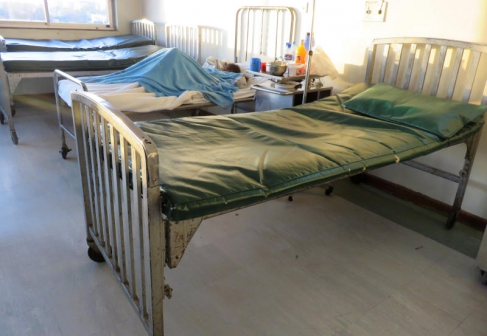
A report by a global health body has raised question on the medical competence of India's medical professionals.
The report by World Health Organization (WHO) claims that almost 60 per cent of allopathic doctors in India have no medical qualifications.
Allopathic doctors are trained physicians who are capable of diagnosing ailments, conditions, and disorders and as well provide preventive care medicine.
According to the report that combined data from 2001, 57 per cent of these allopathic doctors (physicians) had no medical qualification.
The report which was covered widely by Indian media upon its release in June 2016. The Hindu, stated that almost 31 per cent of those who claimed to be allopathic doctors had just a high school certificate.
Some 57 per cent did not have any medical qualification.
The reality was much worse in rural India as only 18 per cent of doctors had a medical qualification.
Female doctors who made up 38 per cent of the total healthcare workers were found to be more educated and were medically qualified.
In percentages, the report titled 'The Health Workforce in India' revealed that 67 per cent of female health workers had a medical qualification compared to 38 per cent male.
In an article by The Hindu, Secretary of Medical Council of India(MCI) Dr Reena Nayyar acknowledged that any person who practiced medicine is a quack though the council had not officially received the report by then.
India is one of the countries that Kenya is eyeing to source foreign doctors from-others mentioned are South Sudan, Philipines and Cuba.
President Uhuru Kenyatta's proposal-which has since been denied by Health Cabinet Secretary Dr Cleopa Mailu-to have some doctors seconded to the country by the Indian government during his trip to New Delhi is said to have been ignored.
"India's healthcare is actually worse, what is good with it is the marketing aspect. The private sector is doing well but the government side with its subsidiaries end up only favouring medical tourism and drug manufacturing," said Kenya Medical Practitioners Pharmacists and Dentists Union (KMPDU) Ouma Oluga.
For Cuba, if Kenya wants exact number of doctors-4,000-to replace the striking ones then the government needs to cough at least Sh2.25 billion every month.
This is from calculations from a 2013 deal between Cuba and Brazil where the latter spent Sh270 billion that year for 4,000 doctors.
India's doctor patient ratio is stands at 0.7 to 1,000 patients, Cuba 1:155 compared to Kenya's 1:16,000 which is below the WHO recommended ration of 1:1,000.
Due to Cuba's lowest doctor patient rations of 1:155 it has some 37,000 medics (half who are doctors) working across over 77 countries in government missions earning the country up to Sh800 billion(USD 8 billion) every year according to Forbes.
Doctors' union have claimed that it will only cost the taxpayer Sh8 billion to implement the Collective Bargaining Agreement(CBA) that seeks to upgrade their salaries by 180 per cent, employ 1,200 more doctors every year and equip hospitals with the necessary equipment.
 The Standard Group Plc is a multi-media organization with investments in media
platforms spanning newspaper print
operations, television, radio broadcasting, digital and online services. The
Standard Group is recognized as a
leading multi-media house in Kenya with a key influence in matters of national
and international interest.
The Standard Group Plc is a multi-media organization with investments in media
platforms spanning newspaper print
operations, television, radio broadcasting, digital and online services. The
Standard Group is recognized as a
leading multi-media house in Kenya with a key influence in matters of national
and international interest.











